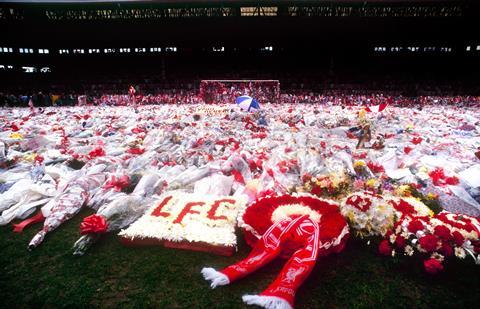For once, the government chose its moment well. The new Hillsborough Law finally arrived as fresh concerns were aired about inequality of arms at inquests and inquiries

The timing could not have been better. In the same week that the government announced public bodies would no longer be able to rack up massive, unlimited legal costs for inquests and inquiries, it was revealed that the Post Office paid Herbert Smith Freehills £83m for support as its legal representative for the Horizon public inquiry.
Speaking to Computer Weekly, Post Office campaigner Sir Alan Bates described as ‘utter madness’ the fact that a publicly owned corporation could be allowed to spend so much over a five-year period.
Victims represented at the inquiry were at least fortunate enough to have funding for that representation – albeit at a far lower level than the Post Office was spending.
Others are not so lucky.
Phillip Hoole did not have a lawyer alongside him when he represented his family at the inquest for his son Joshua, an Army corporal who died following a gruelling fitness test conducted in dangerously hot conditions. The coroner expressed ‘grave concerns’ about the Army’s ability to learn from previous mistakes and sent a report to prevent future deaths to the defence secretary.
Joshua’s father, who now campaigns against Crown immunity from prosecution under the Health and Safety at Work Act, was not eligible for legal aid and at the inquest faced a platoon of lawyers from the Ministry of Defence, which he says spent £650,000 on legal fees.
‘It is very intense representing yourself for nearly four weeks at an inquest, preparing for the different witnesses, having to learn the etiquette and how to write submissions,’ said Hoole, who has submitted the evidence he gathered to the police. ‘It is not something that I would recommend for anyone.’
The government directly addresses the issue as part of its Public Office (Accountability) Bill – better known as Hillsborough Law – which was introduced to the House of Commons this week.
'We have witnessed decades of institutional defensiveness and cruelty designed to evade scrutiny and accountability. The legacy of this project will help redress the power of the state and end the culture of lies and cover-ups'
Deborah Coles, Inquest
The pledge to bring forward a duty of candour on public bodies has attracted most attention. However, the biggest practical difference the legislation will make is to reduce the chances of a David v Goliath-style encounter at inquests and inquiries, where public bodies bring a sizeable legal team while victims’ families are often unrepresented.
The bill will create a new duty on public authorities to only engage legal representation in a ‘necessary and proportionate’ way, which in reality means that coroners and inquiry chairs will pay close attention to the costs being incurred. Public authorities will be under an additional and specific duty to ensure their lawyers conduct themselves in line with conduct and behaviour guidance, while coroners and inquiry chairs will have the power to raise any concerns they may have about a legal representative.
Meanwhile, legal aid will be made readily available for families at inquests and inquiries where a public authority is an interested party – albeit normally limited to one advocate per group. This will be achieved through amending the Legal Aid, Sentencing and Punishment of Offenders Act 2012 to remove the requirement to apply for exceptional case funding.
Justice secretary David Lammy said: ‘The changes we’re making will ensure truth and justice are never concealed again and brave families never again left fighting endlessly for the truth – and anyone caught trying to do so will face the full force of the law.’
Deborah Coles, director of the charity Inquest, which supports bereaved families, said there had long been ‘deep inequality’ faced by those without legal support, while state agencies are legally represented at public expense.
‘We have witnessed decades of institutional defensiveness and cruelty designed to evade scrutiny and accountability,’ she said. ‘The legacy of this project will help redress the power of the state and end the culture of lies and cover-ups.’
In some quarters, there remains scepticism about the enforcement of new measures holding public authorities to account, as well as some of the rhetoric coming out of the government.
Des Collins, senior partner at Collins Solicitors and lawyer to 1,500 victims of the infected blood scandal, said the legislation would have made a huge difference during the public inquiry, which was dogged by discussions about who knew what.
But he added: ‘The reality is however, that the inequality of arms at inquests and inquiries is almost impossible to police and enforce. Securing legal aid involves bureaucratic delay for victims and cost limits are imposed, whereas the authorities can spend what they chose, when they chose.
‘Victims will still be waiting for authorisation when their opponent has spent the money and already called their evidence. In practice, I don’t see this bill doing much to balance this procedural disparity between the parties.’
‘I am also concerned at how the bill has been greeted and discussed by politicians during media rounds this week. They have described how it would apply in “outrageous” circumstances of public injustice. What does that mean for its use in situations where the public have been mislead in a “non-outrageous” way? How will “outrageous” be defined?’
Elkan Abrahamson of law firm Broudie Jackson Canter, a director of the Hillsborough Law Now campaign, said there have been too many occasions where public bodies’ legal spending was ‘virtually ungoverned’.
‘For the first Hillsborough inquests, the families had no funding, not even legal aid, and faced multiple publicly funded bodies. The rates paid privately [are] much higher hourly rates with effectively no cap and a multiplicity of funded parties, often even when there is no conflict. In cases like this, the families feel outgunned and impotent,’ he added.




































No comments yet